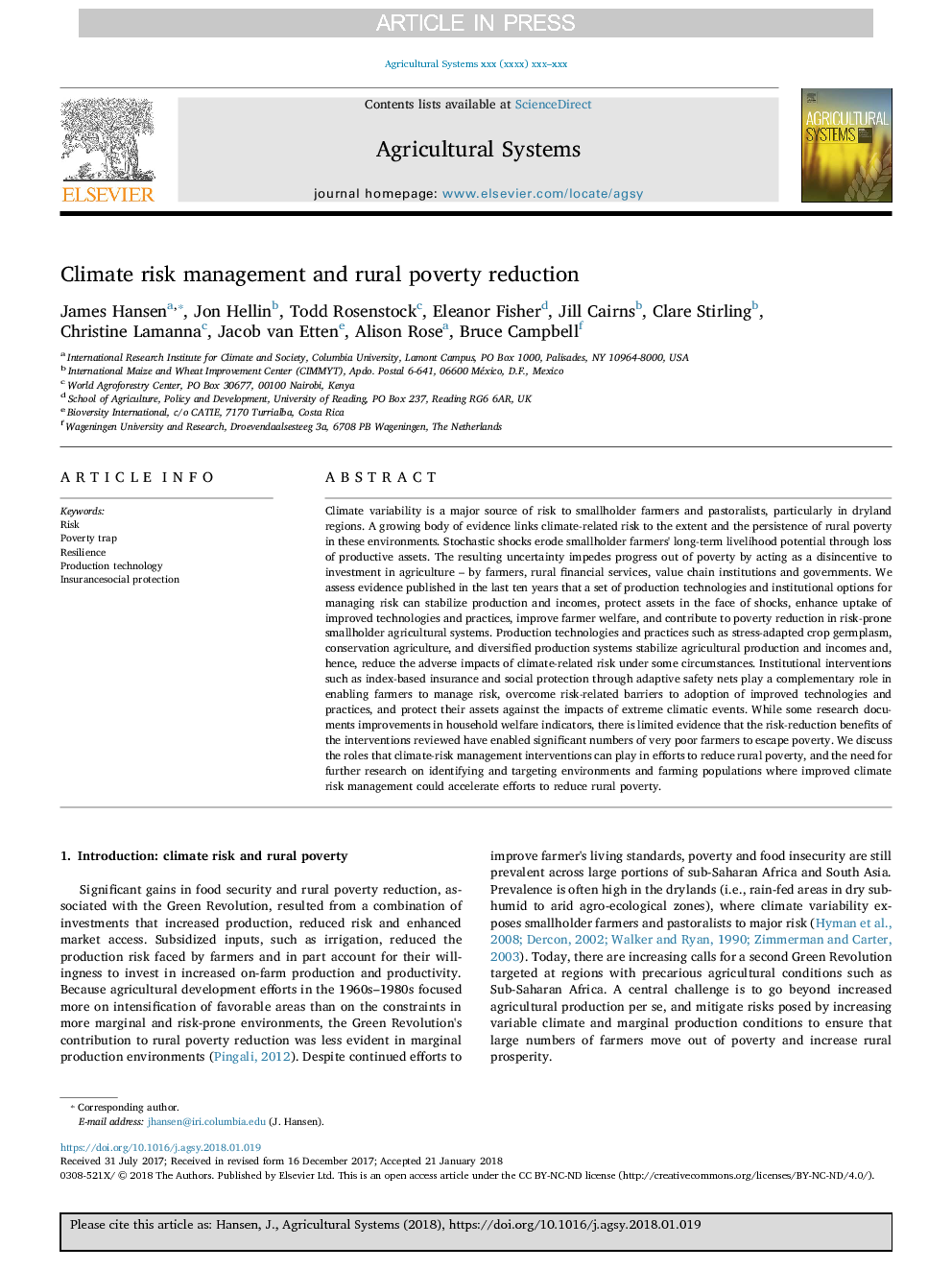ترجمه فارسی عنوان مقاله
مدیریت ریسک پذیری و کاهش فقر روستایی
عنوان انگلیسی
Climate risk management and rural poverty reduction
| کد مقاله | سال انتشار | تعداد صفحات مقاله انگلیسی |
|---|---|---|
| 83166 | 2018 | 19 صفحه PDF |
منبع

Publisher : Elsevier - Science Direct (الزویر - ساینس دایرکت)
Journal : Agricultural Systems, Available online 1 February 2018
ترجمه کلمات کلیدی
خطر، تله فقر، انعطاف پذیری، فن آوری تولید، حفاظت از بیمه عمر،
کلمات کلیدی انگلیسی
Risk; Poverty trap; Resilience; Production technology; Insurancesocial protection;

